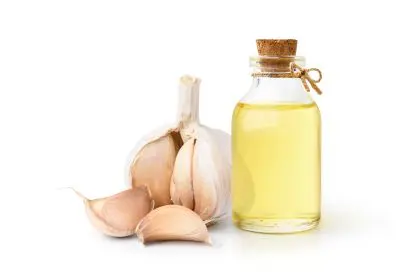The distinct scent of freshly cut grass, blooming flowers, and warm breezes signal spring’s welcome arrival for many. Yet for approximately 25% of American adults, these seasonal changes trigger an unwelcome cascade of sneezing, congestion, itchy eyes, and respiratory discomfort. As seasonal allergies affect millions nationwide, many sufferers seek alternatives beyond conventional medications, turning toward natural supplements and lifestyle adjustments for relief.
While traditional antihistamines and decongestants remain effective options, increasing interest in holistic approaches has sparked research into supplements and strategies that might complement or, in some cases, replace pharmaceutical interventions. Understanding these options provides allergy sufferers with expanded tools for managing symptoms during challenging months.
The science behind seasonal allergies
At their core, seasonal allergies represent an immune system miscalculation. When harmless airborne particles like tree pollen, grass spores, ragweed, or mold enter the body, the immune system mistakenly identifies these substances as threatening invaders. This triggers a defensive cascade releasing chemicals like histamine into the bloodstream, creating inflammation and the characteristic symptoms of seasonal allergies.
Different seasons bring different challenges depending on location and climate. Spring typically marks the arrival of tree pollen allergies, while summer introduces grass pollen reactions. Fall brings ragweed—one of the most potent allergens—along with mold spores that thrive in decomposing autumn leaves. Understanding this seasonal progression helps in developing targeted prevention strategies.
The intensity of allergic responses varies widely between individuals, with some experiencing mild inconvenience while others face debilitating symptoms that significantly impact quality of life. This spectrum of reactions explains why treatment approaches must often be personalized, combining various techniques and remedies tailored to specific symptom patterns and severity.
Evidence-based natural supplements
The marketplace overflows with supplements claiming to alleviate allergy symptoms, but scientific evidence supporting these claims varies considerably. Several natural compounds have demonstrated promising results in preliminary research, though most experts acknowledge that more comprehensive studies are needed to fully validate their effectiveness.
Vitamin C stands among the most promising natural options for allergy management. Found abundantly in citrus fruits, strawberries, bell peppers, and broccoli, this essential nutrient appears to function as a natural antihistamine. Research suggests vitamin C may help reduce histamine production while supporting overall immune function. Studies indicate that higher dietary intake of vitamin C correlates with fewer allergy symptoms, though supplement dosages required for significant effect may exceed what diet alone provides.
Quercetin, a plant compound classified as a flavonoid, has attracted substantial interest in allergy management circles. This compound occurs naturally in foods like apples, berries, red onions, and green tea. Laboratory research demonstrates that quercetin can stabilize mast cells—the immune cells responsible for releasing histamine during allergic reactions. This stabilization potentially reduces histamine release and subsequent inflammation. While human studies remain limited, early research suggests quercetin supplementation may help decrease sneezing frequency and other common allergy symptoms.
The relationship between gut health and allergic responses represents one of the most intriguing developments in allergy research. Probiotics—beneficial bacteria that support digestive health—may influence immune function throughout the body, potentially moderating allergic responses. Several studies suggest that certain probiotic strains might help reduce symptoms associated with seasonal allergies, particularly when taken preventatively before allergy season begins. The mechanisms appear related to improved gut barrier function and modulation of inflammatory pathways involved in allergic reactions.
Spirulina, a blue-green algae rich in antioxidants and anti-inflammatory compounds, has demonstrated potential in reducing nasal allergy symptoms in preliminary studies. Research suggests this supplement may inhibit the release of histamine from mast cells while simultaneously supporting immune function. Though more research is needed, initial results appear promising for individuals seeking natural approaches to nasal congestion and inflammation.
Butterbur extract gained attention after several European studies suggested it might be comparable to conventional antihistamines in relieving allergy symptoms. However, safety concerns have emerged regarding potential liver toxicity when butterbur products contain pyrrolizidine alkaloids (PAs). Only PA-free butterbur products should be considered, and even these merit caution and professional consultation before use.
Supplements requiring caution
Despite their natural origins, not all supplements promoted for allergy relief prove beneficial, and some may even worsen symptoms or cause other health concerns. Stinging nettle, frequently marketed as a natural antihistamine, produces mixed results in clinical observation. Some individuals report significant relief, while others experience no benefit or even exacerbation of symptoms. Those with existing allergies to plants in the same family may experience cross-reactivity.
Echinacea, widely used for immune support, potentially stimulates immune function—an effect that could theoretically worsen allergic responses that already involve an overactive immune system. Individuals with ragweed allergies should approach echinacea with particular caution due to potential cross-reactivity between these related plants.
Several herbal supplements may interact with conventional allergy medications or other pharmaceuticals. For instance, butterbur and quercetin may affect liver enzyme activity, potentially altering the metabolism of certain drugs. This underscores the importance of consulting healthcare providers before beginning any supplement regimen, especially for individuals taking prescription medications.
The supplement industry remains less regulated than pharmaceuticals, leading to significant variation in product quality and potency. Choosing products certified by independent testing organizations helps ensure supplements contain the advertised ingredients at effective concentrations without harmful contaminants.
Lifestyle strategies for allergy management
Effective allergy management extends beyond supplements to encompass environmental modifications and behavioral adaptations that limit exposure to triggering substances. These approaches form the foundation of comprehensive allergy management, often enhancing the effectiveness of both natural and conventional treatments.
Minimizing allergen exposure represents the most fundamental preventive strategy. During high pollen seasons, keeping windows closed prevents outdoor allergens from entering living spaces. High-efficiency particulate air (HEPA) filters in home ventilation systems capture microscopic particles that might otherwise circulate indoors. For individuals with severe allergies, wearing masks during outdoor activities provides an additional barrier against airborne allergens.
Daily habits can significantly impact allergen accumulation. Evening showers wash away pollen particles that collect on skin and hair throughout the day, preventing these allergens from transferring to bedding and prolonging exposure during sleep. Similarly, changing clothes after outdoor activities reduces allergen transfer to furniture and other household surfaces.
Pollen count monitoring through weather applications or allergy-specific services allows for informed planning. When pollen counts reach particularly high levels, limiting outdoor activities during peak hours (typically mid-morning through early afternoon) can substantially reduce exposure and subsequent symptoms.
Home maintenance practices affect indoor allergen levels. Regular vacuuming with HEPA-filtered equipment removes accumulated allergens from carpets and upholstery. Washing bedding weekly in hot water eliminates dust mites and pollen particles that may trigger symptoms. Maintaining indoor humidity below 50% discourages dust mite proliferation and mold growth, which contribute to year-round allergy symptoms.
Dietary choices may influence allergic sensitivity. Some research suggests that an anti-inflammatory diet rich in omega-3 fatty acids, antioxidants, and flavonoids may help moderate allergic responses. Conversely, alcohol consumption appears to increase allergic sensitivity in some individuals, potentially exacerbating seasonal symptoms.
Stress management deserves consideration within comprehensive allergy management approaches. Research indicates that psychological stress can amplify allergic responses and increase symptom severity. Regular stress-reduction activities—whether meditation, yoga, deep breathing exercises, or other techniques—may help moderate the body’s inflammatory responses to allergens.
Conventional treatments worth considering
While natural approaches offer valuable options, conventional medications remain effective tools for managing seasonal allergies, particularly during severe symptom episodes. Understanding these options allows for informed decisions about when pharmaceutical intervention may prove beneficial.
Second-generation antihistamines like loratadine, cetirizine, and fexofenadine block histamine receptors without the significant drowsiness associated with older formulations. These medications effectively address symptoms like sneezing, itching, and runny nose with once-daily dosing that maintains consistent coverage throughout allergy season.
For nasal congestion and inflammation, corticosteroid nasal sprays provide targeted relief with minimal systemic absorption. These medications reduce inflammation in nasal passages while addressing multiple symptom mechanisms. Their full effectiveness typically develops over several days of consistent use, making them ideal for preventive rather than as-needed application.
Saline nasal irrigation using neti pots or similar devices physically removes allergens from nasal passages while moisturizing nasal tissues. This approach complements both natural and pharmaceutical interventions by directly addressing allergen accumulation in the nasal cavity.
For individuals with severe or persistent allergies, immunotherapy presents a long-term solution that addresses the underlying immune dysfunction rather than merely managing symptoms. This approach, available as injections or sublingual tablets, gradually desensitizes the immune system to specific allergens over months or years. The time investment potentially yields lasting reduction in allergic sensitivity, reducing or eliminating the need for other interventions.
Creating a personalized approach
The most effective allergy management typically involves personalized combinations of natural supplements, environmental modifications, and conventional treatments tailored to individual symptom patterns and preferences. This integrated approach often yields better results than exclusive reliance on any single intervention.
Timing represents a crucial aspect of effective management. Beginning preventive measures several weeks before anticipated allergy seasons allows interventions to establish effectiveness before symptom onset. Similarly, taking antihistamines before allergen exposure prevents symptom development more effectively than attempting to address established reactions.
Physical reactions to supplements vary significantly between individuals due to differences in metabolism, immune function, and specific allergy triggers. Starting with lower doses and gradually increasing allows for assessment of both effectiveness and potential side effects. Keeping a symptom journal while introducing new supplements helps identify which interventions provide meaningful benefits for specific symptom patterns.
For those interested in natural approaches, working with healthcare providers knowledgeable about integrative medicine offers guidance in selecting evidence-based options while avoiding potential interactions with existing medications. This collaborative approach ensures safety while expanding available tools for symptom management.
Looking forward with confidence
Seasonal allergies need not dictate lifestyle limitations or chronic discomfort. By combining strategic allergen avoidance, carefully selected supplements with promising evidence bases, and judicious use of conventional treatments when needed, most individuals can find significant relief from even substantial allergic symptoms.
The growing research interest in natural approaches to allergy management continues to expand available options while strengthening the evidence base for existing interventions. This evolving understanding allows for increasingly sophisticated approaches that address both symptoms and underlying immune function.
With proper preparation and a personalized management strategy, seasonal transitions can once again represent opportunities for outdoor enjoyment rather than sources of dread. The blooming flowers, fresh-cut grass, and gentle breezes of spring can be appreciated without the familiar dread of persistent allergic symptoms.
For those struggling with seasonal allergies, the message remains hopeful: effective management options continue to expand, offering increasingly personalized approaches that align with individual preferences while delivering meaningful relief. By combining the best of natural approaches with strategic conventional interventions when needed, seasonal allergies need not define springtime experiences.


















